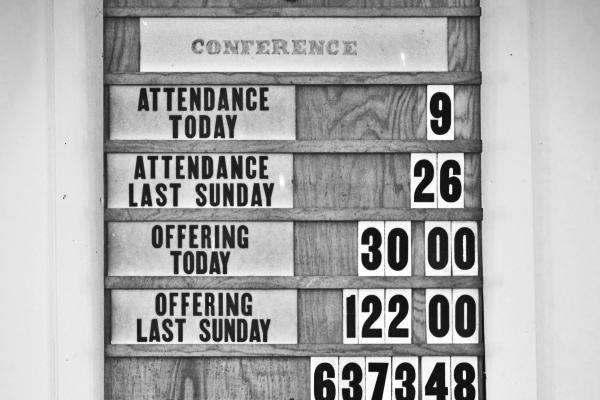At a church I used to serve there was a well-intentioned person who after every service would tell me how many people were in attendance. “We had 47 today, Preacher,” he would say. I could hear the disappointment in his voice when he would have to tell me a low number like 35. A smile beamed across his face when we had more than 50. No matter the number, he would tell me without fail.
In every church that I have ever visited or served there has been an emphasis on the number of people that attend the morning worship services.
After years in the ministry, I have come to the conclusion that the church needs to stop taking attendance — immediately.
For many churches the process of collecting attendance is to get an accurate account of people in worship, to measure how many people occupy space in a pew. Some churches have notepads in the pews so people can fill out their information and place it in a designated area. Others have a volunteer to manually count the people in attendance. No matter how small or big the faith community is, an attendance is taken. Some congregations publish the number of people in their church bulletins or have it on a sign in the sanctuary to compare last week to this week.
For too long churches have measured their ‘success’ and ‘failures’ on the number of people that darken the door on 11 a.m. on Sunday morning. The quickest way to get people to wring their hands in worry is to tell them that numbers in worship have dropped. Visions of the church closing its doors will run through people’s minds inciting more and more anxiety.
It’s no secret that the church in the American culture is not where most Christians would like it to be. The church that was once the central hub of the community is now a place where a subset of people goes on Sunday mornings. The church has been in a decline for some time, and I believe this has caused us to become more inward focused. As the church began to experience decline numerically, the church’s reaction was to try making everyone left happy — from the ministers and worship leaders to the custodial staff. The boat was not rocked, things stayed the same, a course was laid, and no deviation would be acceptable.
Read the Full Article

